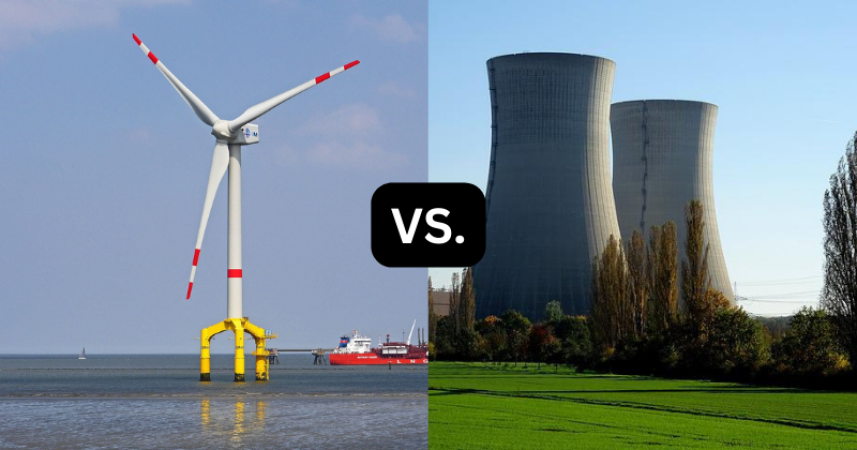What the 2023 General Assembly didn’t pass is also an important Virginia energy policy story, starting with failure on its part to fill the two open seats on the crucial State Corporation Commission. This follows its failure last year to fill one open seat on the three-judge panel.
As reported previously, advocates for restored SCC authority over utility rates had more success this year than in a long time, largely because Governor Glenn Youngkin (R) was among them. The bills awaiting his signature may not mean much if the Commission itself is barely functioning. A string of major cases for 2023 was created by these new bills, with just one commissioner and perhaps some interim substitute judges to hear them.
The failure to agree on two names was accompanied by a refusal to pass the proposed legislation that would have given both new judges a full six-year term. Otherwise, one of them would be filling out the short remaining tenure of retired Commissioner Judith Jadgmann. She left her seat early in part to create the opportunity for Republicans and Democrats in the divided Assembly to each name one commissioner. Compromise eluded them.
There is one difference this time. This year, unlike last year, the Assembly is fully adjourned. Unless names appear at the reconvened session April 12, it may be possible for Youngkin to name interim commissioners, but anyone so named would have to be confirmed by the next (post-election) General Assembly.
The battle over SCC seats is really another battle over energy policy. How its members will rule on banking, insurance or railroad safety controversies cannot matter to legislators, but how they rule on offshore wind and solar developments are of great concern to many. The idea that commissioners might just follow the law, evidence and precedents seems like wishful thinking.
The deadlock over the SCC is just another result of the overall energy deadlock between the Republicans who control the House of Delegates and Democrats who control the Virginia Senate. Along with other liberal priorities, Democrats defended all the elements of the Green New Deal energy vision they adopted under Governor Ralph Northam. Nothing was rolled back this year, just as nothing was last year.
Once again, the House voted to pass but the Senate killed a bill to decouple Virginia from California’s air pollution regulations which will soon begin to mandate certain levels of electric vehicle sales. The House voted to pass but the Senate killed legislation to prevent Virginia’s local governments from restricting or banning the use of natural gas in homes and businesses.
This year did bring a new issue on that front, however, harder for the Democrats to just reject. Governor Youngkin has revived interest in nuclear power, clearly a no-carbon alternative and one that provides the kind of reliable baseload that can support the intermittent power generation of solar and wind facilities.
No law needs to pass or change for any Virginia utility to propose such a facility, or for the SCC to approve such a facility. It is just another power plant covered by the usual process for building new generation. But two major bills were introduced to give the technology a boost, in particular the small modular reactors (SMRs) likely to replace the standard nuclear designs of earlier decades.
Perceived as threats to the advantages and incentives in place for wind and solar and battery, both bills ultimately failed.
House Bill 2333 seemed to be drafted to ease the path to such a facility for Dominion Energy Virginia, since it required the developer of an SMR facility to have a prior history with nuclear plants. Legislators who elsewhere were voting to restore SCC autonomy seemed quite comfortable with this language that attempted to dictate terms to the regulators, although there was no effort to assert that SMR technology was “in the public interest” or to be “deemed reasonable and prudent.”
But it did include language that such applications would be “liberally granted to facilitate” such a plant. That is where the Senate Democrats had other plans, and they sent the bill back approved, but with the following revision:
The costs of a small modular nuclear reactor approved under this section, other than return on projected construction work in progress and allowance for funds used during construction, shall not be recovered prior to the date such facility constructed by the utility begins commercial operation. In the event a utility abandons a small modular nuclear reactor approved under this section prior to commercial operation, the utility shall not recover any capital costs regardless of whether such costs were reasonably and prudently incurred. The Commission may impose additional conditions it believes necessary to protect customers against unreasonable construction, development, or operational risk.
The first thought one might have on reading that: that would have been a great addition to the bill mandating construction of the offshore wind boondoggle. Of course, Democrats had no interest in imposing such consumer protections in that case. The House Republicans wouldn’t accept it on behalf of the SMR idea either, so the bill died in a conference committee.
House Bill 2197 was a more direct threat to the wind-solar-battery hegemony, and the gigantic global industries getting rich off that near monopoly. It would have allowed nuclear power onto the renewable energy credit gravy train, allowing it and hydrogen-fueled projects to count toward utilities meeting their renewable portfolio standards mandates. More gigawatts from nuclear might mean fewer from wind or solar (and batteries become totally unnecessary.)
When killing the bill in a Senate committee, which Democrats promptly did, the discussion mainly focused on the hydrogen proposal. Even with the use of hydrogen, only a subset of possible sources is favored by environmental purists, because it takes energy to split off and capture the volatile hydrogen atoms. The committee discussion devolved into a debate over blue hydrogen, green hydrogen, or brown hydrogen.
That was a distraction. It is nuclear power that is a real threat to the wind and solar industrial complexes. The bill went away because it wanted to treat nuclear energy as morally and legally equal to those, which under Virginia Democrats’ vision for Virginia’s energy future cannot be allowed.
To top it off, Democrats in the Senate killed a simple House bill to allow a few Southwest Virginia localities to form a local revenue sharing agreement in the event a nuclear plant got built out there. The only reason to kill that was to reinforce that no such plant is coming, not while they rule the Senate.

A version of this commentary originally appeared February 27 in the online Bacon’s Rebellion. Steve Haner is Senior Fellow with the Thomas Jefferson Institute for Public Policy. He may be reached at steve@thomasjeffersoninst.org.






